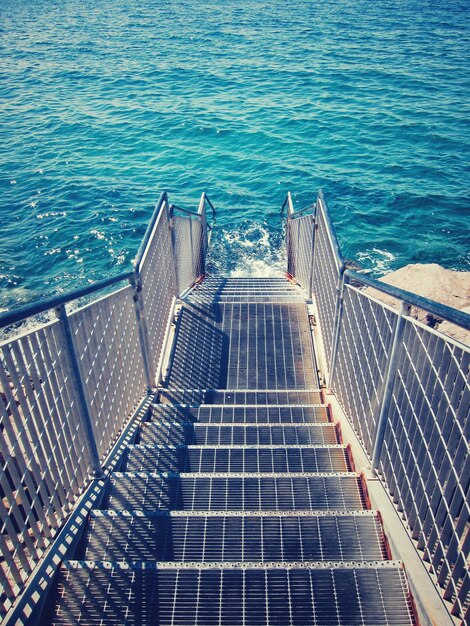The Environmental Impact of Cruises: Ethical Options for US Travelers in 2025

The Environmental Impact of Cruises: Are There Ethical Options for US Travelers in 2025? Cruises significantly impact the environment through emissions, waste, and habitat disruption, but travelers can mitigate these effects by choosing eco-friendly cruise lines, participating in sustainable tourism practices, and advocating for industry-wide changes.
Planning a cruise in 2025? It’s vital to consider the environmental impact of cruises: Are there ethical options for US travelers in 2025? Let’s explore how you can minimize your footprint while still enjoying the voyage.
Understanding the Environmental Footprint of Cruises
Cruises offer a unique way to see the world, but their environmental impact is significant. From air and water pollution to waste management challenges, it’s essential to understand the full scope of the problem.
The cruise industry has been under increasing scrutiny for its environmental practices. Understanding the impacts of these practices is the first step toward finding more sustainable options.
Air Pollution from Cruise Ships
Cruise ships often burn heavy fuel oil, which releases pollutants into the atmosphere that contribute to acid rain and respiratory problems.
Water Pollution from Cruise Ships
Wastewater discharge, including sewage and greywater, can contaminate marine ecosystems, harming marine life and coral reefs.

Waste Management on Cruise Ships
Large cruise ships generate massive amounts of waste, including food, plastic, and other materials. How this waste is managed is crucial for minimizing environmental damage.
- The amount of waste produced is staggering, requiring effective waste management systems.
- Improper disposal of waste can lead to marine pollution and harm to wildlife.
- Recycling and waste reduction strategies are essential for sustainable cruising.
The environmental footprint of cruises is multifaceted and requires careful consideration. Understanding these impacts is the first step toward making more ethical travel choices.
Regulations and Industry Standards for Cruise Ships
To address the environmental concerns associated with cruises, various regulations and industry standards have been implemented. These measures aim to reduce pollution and promote more sustainable practices.
Regulations play a crucial role in holding cruise lines accountable for their environmental impact. These standards vary by region and international agreements.
International Maritime Organization (IMO) Regulations
The IMO sets global standards for ship emissions and waste management, aiming to protect the marine environment.
US Environmental Protection Agency (EPA) Regulations
The EPA enforces regulations on cruise ships operating in US waters, covering areas like air emissions and wastewater discharge.
Industry-Led Initiatives
Some cruise lines have taken proactive steps to reduce their environmental impact through voluntary sustainability initiatives.
- Investing in cleaner technologies such as scrubbers and LNG propulsion systems
- Implementing stricter waste management and recycling programs
- Partnering with environmental organizations to improve sustainability practices
Regulations and standards are continuously evolving to address the environmental challenges posed by the cruise industry. Staying informed about these measures can help travelers make more responsible choices.
Emerging Technologies for Greener Cruising
Technological innovations are offering promising solutions for reducing the environmental impact of cruise ships. These technologies range from alternative fuels to advanced wastewater treatment systems.
Sustainable technology is rapidly advancing, offering solutions that could transform the cruise industry and make it more environmentally friendly.
Liquefied Natural Gas (LNG) Propulsion
LNG is a cleaner-burning fuel compared to heavy fuel oil, reducing emissions of sulfur oxides, particulate matter, and nitrogen oxides.
Scrubbers for Exhaust Gas Cleaning
Scrubbers remove pollutants from exhaust gases, helping to reduce air pollution from cruise ships.

Advanced Wastewater Treatment Systems
These systems treat wastewater to a high standard, minimizing the discharge of pollutants into the ocean.
- Membrane bioreactors (MBRs) effectively remove contaminants from wastewater.
- UV disinfection systems kill bacteria and viruses, ensuring safer discharge.
- These technologies are essential for protecting marine ecosystems from pollution.
Emerging technologies offer a pathway toward greener cruising, but their adoption depends on investment and regulatory support.
Identifying Ethical Cruise Lines in 2025
With growing awareness of environmental issues, more travelers are seeking ethical cruise options. Identifying cruise lines that prioritize sustainability is crucial for responsible travel.
Ethical cruise lines are committed to minimizing their environmental impact and promoting sustainable tourism practices.
Certifications and Ratings
Look for cruise lines with certifications from reputable environmental organizations, such as Green Marine and Blue Angel.
Transparency and Reporting
Ethical cruise lines are transparent about their environmental performance and regularly report on their progress.
Sustainable Practices
Consider cruise lines that implement sustainable practices, such as reducing waste, conserving water, and supporting local communities.
Choosing ethical cruise lines requires research and due diligence. By supporting companies that prioritize sustainability, travelers can help drive positive change in the industry.
Sustainable Practices for Cruise Passengers
Even when choosing a cruise, passengers can adopt sustainable practices to minimize their environmental impact. These practices range from reducing waste to supporting local communities.
Passengers play a vital role in promoting sustainability on cruises. By adopting responsible behaviors, they can help reduce the environmental footprint of their trip.
Reduce, Reuse, Recycle
Minimize waste by bringing reusable items, avoiding single-use plastics, and participating in recycling programs on board.
Conserve Water and Energy
Be mindful of water and energy consumption by taking shorter showers, turning off lights, and using energy-efficient settings.
Support Local Communities
Choose shore excursions that support local businesses and communities, and avoid activities that exploit wildlife or damage the environment.
- Participate in sustainable tourism activities that benefit local economies.
- Respect local cultures and traditions, and avoid contributing to overtourism.
- Shop at local markets and purchase locally made products.
Sustainable practices empower cruise passengers to make a positive impact. By adopting these behaviors, travelers can contribute to a more responsible and sustainable cruise experience.
The Future of Ethical Cruising: Trends and Predictions
The future of ethical cruising is shaped by evolving trends and predictions. As awareness of environmental issues grows, the industry is expected to adopt more sustainable practices and technologies.
The cruise industry is facing increasing pressure to improve its environmental performance. Several trends are shaping the future of ethical cruising.
Increased Demand for Sustainable Options
Consumers are increasingly seeking cruise options that minimize environmental impact and support responsible tourism.
Technological Advancements
Ongoing research and development will lead to new technologies that reduce emissions, conserve resources, and protect marine ecosystems.
Policy and Regulation Changes
Stricter environmental regulations and policies will drive further improvements in the cruise industry’s sustainability practices.
The future of ethical cruising is promising, but it requires ongoing efforts from cruise lines, passengers, and policymakers to achieve meaningful change. By embracing sustainable practices and supporting responsible tourism, we can help ensure that cruises are both enjoyable and environmentally friendly.
| Key Point | Brief Description |
|---|---|
| 🚢 Environmental Impact | Cruises contribute to air and water pollution, impacting marine life. |
| ✅ Regulations & Standards | IMO and EPA regulations aim to minimize cruise ship pollution. |
| 🌱 Greener Technologies | LNG, scrubbers, and advanced wastewater treatment offer solutions. |
| 🌍 Sustainable Practices | Passengers can reduce, reuse, recycle, and support local communities. |
Frequently Asked Questions
Cruise ships primarily impact the environment through air and water pollution, including emissions from heavy fuel oil and discharge of wastewater. They also generate significant waste.
The International Maritime Organization (IMO) and the US Environmental Protection Agency (EPA) set and enforce regulations to control emissions, waste management, and wastewater discharge from cruise ships.
Technologies like liquefied natural gas (LNG) propulsion, scrubbers for exhaust gas cleaning, and advanced wastewater treatment systems can significantly reduce the environmental impact of cruises.
Passengers can reduce their impact by reducing waste, conserving water and energy, and supporting local communities through responsible shore excursions and purchases.
Look for certifications from environmental organizations, check for transparency in reporting environmental performance, and research their sustainability practices to identify ethical cruise lines.
Conclusion
As we look to 2025, understanding the environmental repercussions of cruise travel is more critical than ever. By choosing cruise lines committed to sustainability, adopting responsible passenger practices, and staying informed about emerging green technologies, US travelers can navigate the seas with a clearer conscience, ensuring their voyages contribute to a healthier planet.





